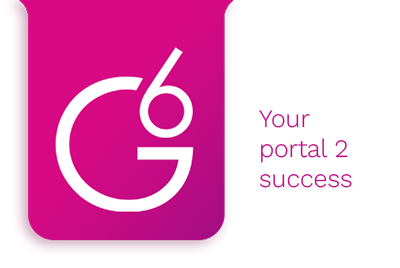Learn More Today!
Monthly
What’s your current process for managing your sales pipeline? How about your lead follow-up process? Do you have a seamless automated sales process?
If the answer is “we don’t have one,” or that you’re relying on a combination of spreadsheets, emails, and handwritten notes. Maybe it’s time to consider an upgrade.
I’m AJ, and I’ve spent the last several years scaling (and exiting) my business using (almost) every CRM available.
I started SBB in an attempt to build a resource that helps Small Business Owners cut through the B.S. and start working on their businesses, not in them.
Let’s explore why Agile CRM might just be the secret sauce your business needs (or doesn’t need depending on some of our pros and cons list).
So, fasten your seatbelts. It’s time to kick off this review of Agile CRM.
FYI—we curated our list of the best Small Business CRM platforms for you to check out when you’re done reading!
You Can Trust Small Business Bonfire
The Small Business Bonfire team and I have been testing and reviewing tons of software over the last decade (we’re talking thousands. Our goal is to help you (our Bonfire Nation) build and grow your ideas! To learn more about how testing methods, please read this article here.
Agile CRM, in the most basic sense, is a customer relationship management tool designed with agility (hence the name) in mind.
It’s a jack-of-all-trades (and master of a ton), offering a suite of sales, marketing, and service features wrapped up in an intuitive user interface.
Some features offered by Agile CRM include the following:
Contact managementLanding page builderPipeline managementHelp desk creationService automationMarketing automationMarketing campaigns
So, why do we at Small Business Bonfire think Agile CRM is perfect for small and midsize businesses (SMBs) and startups?
Simple. It’s an all-in-one platform that combines various facets of your business, reducing the need for multiple tools and thus streamlining operations.
Plus, its user-friendly interface makes it easy for teams of all sizes to get up to speed.
Agile CRM isn’t just a tool; it’s your business’s coxswain, coordinating your crew’s efforts and steering your ship toward success.
Every tool has advantages and disadvantages, and Agile CRM is no exception.
Here’s a quick breakdown of the pros and cons of this CRM.
Easy-to-use dashboard for an effortless user experience
Sales, service, and marketing automation tools
All-in-one platform for managing every aspect of the customer lifecycle
Affordable pricing plans
Great web form creation
Powerful free version
Limited contact customization
No live chat customer support
No real project management capabilities
Agile CRM is a popular platform with a lot going for it, but let’s narrow it down slightly.
We think Agile CRM is best suited for the following:
Small businesses – Agile CRM is a great tool for empowering service, sales, and marketing teams. It’s also great for managing deals, contacts, and tickets—without breaking the bank!Medium-sized businesses – Agile’s automation features are especially helpful for larger teams. In addition, the comprehensive dashboard allows each team to monitor their success and stay on top of their goals.Startups – As a startup founder, you can’t afford to waste time. And Agile CRM makes it easy to quickly build customer relationships with customers with its intuitive user interface. Plus, the free plan means there’s virtually no barrier to entry.
Not every CRM can fit every situation. “What might be right for you, may not be right for some,” as the song goes.
Here’s who we think Agile CRM isn’t particularly well suited for:
Large enterprises – While it’s certainly possible to use Agile CRM for larger teams, the lack of customization may be a dealbreaker. Plus, the lack of live chat customer support makes it a tough sell for bigger teams that might need more hands-on customer service.Specialized fields – For specialized fields (such as healthcare or education) that require specific features, Agile CRM’s capabilities may be limited. There are bigger (more expensive) platforms out there with much more customization.
Agile offers a free plan in addition to three paid plans that range from $8.99 to $49.99/month.
The plans include the following:
Free version – Free account is available for up to 10 usersStarter plan – $8.99/month per userRegular plan – $29.99/month per userEnterprise plan – $47.99/month per user
Let’s compare Agile CRM’s pricing (and features) with three of its fiercest competitors.
Agile CRM – $8.99/month per user
Free planLead scoringAdvanced automationBasic contact managementLanding page builder
HubSpot CRM – $50/month for 2 users
Free planNo lead scoring with the basic planLimited automationBasic contact managementLanding page builder
Pipedrive – $14.90/month per user
No free planNo lead scoringNo automation with the basic planBasic contact managementNo landing page builder
Zoho CRM – $14/month per user
Free planLead scoringBasic automationBasic contact managementLanding page builder
As you can see, the most affordable option here (by far) is Agile CRM at $8.99/month. The only option here that even comes close to Agile is Zoho CRM at $14/month.
However, we ultimately have to give it to Agile CRM in terms of both pricing and features with its robust set of marketing, sales, and service tools for a fantastic price.
Maintaining all your customer data in one place isn’t just a convenience—it’s a game-changer for efficiency.
It’s like having a well-organized toolbox; you know exactly where to find what you need when you need it.
We put Agile’s contact management to the test for a full three months.
We immersed ourselves in the feature, bobbing and weaving through customer records, notes, and action history like seasoned pros.
We navigated through our data with ease, thanks to Agile’s user-friendly interface and robust functionality.
Don’t just take our word for it, though. Let’s look at how easy it was to import and add new contacts.
We were able to easily sync our Small Business Bonfire Google account (shown below) with just a few clicks.
This made it effortless to sync our client information directly from Gmail, which we thought was awesome.
Adding contacts was just as easy! Here’s one of our affiliate marketing B2B clients that we were able to add in seconds.
As you can see, the process of adding a new contact is simple and straightforward.
However, there’s a lot more information available once you’ve created the contact.
For example, within each contact card, you can easily view the following information:
NotesEventsTasksWeb StatsMailDocumentsTicketsAssociated dealsAssociated campaigns
Basically, Agile CRM’s contact management is as powerful as it is intuitive (which is saying a lot).
Creating landing pages with Agile CRM during our three-month exploration was as easy peezy.
The platform offers a robust landing page builder that’s brimming with pre-designed templates —and we’re not just talking basic templates.
These babies are professional, sleek, and highly customizable.
The drag-and-drop editor was a clear standout feature, making the entire process delightfully intuitive.
It was like playing with Lego blocks for adults—just pick the elements you want and snap them into place. Text boxes, images, CTAs; you name it, Agile CRM’s builder had it.
But the cherry on top was the real-time analytics. Being able to monitor our landing page’s performance right within the CRM was awesome.
It was like watching our baby take its first steps; only our baby was a fully-fledged landing page raking in leads left and right.
In short, Agile CRM’s landing page creation is a smooth-sailing journey even for the most tech-challenged among us.
So, whether you’re a seasoned pro or a novice looking to dip your toes into the digital marketing waters, Agile CRM has got your back.
Agile CRM’s form builder was a revelation. It was like being handed a magical chisel with which we could sculpt our own online masterpiece.
And so we did! We used it to create a sign-up form for our highly sought-after Bonfire Field Guide.
Here’s how the creation process looked.
We started with a blank canvas and, using Agile’s easy-to-use form builder, we were able to add fields for the following:
First and last nameEmailNumber
It didn’t just create the form—it also gave us the code we could use to embed it directly into our website. No hocus-pocus, no technical skills required. Just good ol’ copy-paste action, and voila!
A sophisticated sign-up form, ready to collect potential leads, was seamlessly integrated into our site.
So, after three months of reviewing the platform, we can confidently say Agile’s form builder offers an intuitive and user-friendly experience that can even make tech newbies feel like pros.
Pipeline management is the heartbeat of a CRM system—it’s where potential turns into profit.
It’s like the conductor of an orchestra, harmonizing leads, deals, and sales teams to produce a symphony of successful closures. With Agile CRM, we found managing our sales pipeline was as smooth as a Mozart symphony.
Agile CRM offers a multitude of tools to design, tweak and track your pipelines.
During our testing, we folded our affiliate marketing deals at Small Business Bonfire right into our CRM.
Agile CRM made it a breeze to add and manage our deals, demonstrating an impressive level of ease and flexibility.
Here’s how the deal creation screen looked (to paint a picture for you).
Fields were easy to find and fill, the layout was logical, and it felt like walking through a well-planned journey— from lead to deal closure.
And here’s how our deals looked after we put everything into our pipeline.
Imagine walking into a well-organized room where every item has its place, and everything is easy to locate—that’s how our pipeline looked in Agile CRM.
It was visual, coherent, and accessible, making the process of tracking and optimizing our deals as easy as pie.
At Small Business Bonfire, being the adventurous sort, we decided to go all in and create several campaigns to test the system’s capabilities.
We started with an email marketing campaign promoting our affiliate marketing program.
The process involved designing our email using the handy drag-and-drop editor, segmenting our audience (Agile CRM made this a piece of cake), and scheduling the emails.
It was a straightforward process, much like piecing together a puzzle.
We were able to add triggers to the campaign easily. Check out this screenshot, which shows how we added a trigger that added a contact related to a specific tag.
This made it super easy to target our campaign to the right people.
We also thought it was great that we were able to track the progress of our campaigns directly within Agile CRM, which made it easy to keep tabs on performance.
The ability to coordinate multiple channels from one platform was, to put it mildly, incredibly efficient.
Let’s delve into the world of Agile CRM’s email templates.
Utilizing the easy-to-navigate builder, we created an email that matched our brand aesthetics, delivered our message clearly, and enticed recipients.
Here’s a sneak peek of the feature during our creation process.
The builder offered myriad design elements—from text boxes to images and CTA buttons—everything we needed to create an effective email was right there.
But the magic doesn’t stop at creation. Agile CRM also offers nifty scheduling features, ensuring that our emails reach our audience at the most opportune time.
Beyond that, we could monitor the performance of our emails right from the Agile CRM platform, making it a one-stop shop for our email marketing efforts.
Agile CRM’s email templates allowed us to craft, schedule, send, and monitor our emails all in one place—a marketer’s dream come true.
It’s like having your cake and eating it too!
When it came to managing our service tickets, we found Agile CRM’s Help Desk to be awesome. It was more than just a hub—it was a control center where every request was a mission, and every mission was accomplished with precision.
We created tickets with just a few clicks, assigned them to the relevant team members, and kept track of their progress until resolution.
Here’s how it looked to create a ticket during our testing.
In other words, Agile CRM’s Help Desk plays the role of a skilled traffic cop, expertly guiding your customer service tickets to their proper destination, making sure no request gets lost in the abyss of oblivion.
Our takeaway: If you’re looking for an easy-to-use, intuitive ticket management system, then Agile CRM is the perfect choice. With its help desk capabilities, it can turn your customer service team into a well-oiled machine.
During our exploratory jaunt through Agile CRM, we discovered the true joy of automation.
Here’s a breakdown of the three types of automation we tested:
Service Automation: This was a real game-changer for us. Agile CRM allowed us to streamline our service processes, automatically assigning users based on the priority of their service tickets.Marketing Automation: With Agile CRM, we were able to set up a multitude of marketing operations to run on autopilot. We could schedule emails, segment our audience, and even track campaign performance— all without lifting a finger after the initial setup. It was like having a full-blown marketing team working round the clock, only without the coffee breaks.Sales Automation: This feature allowed us to revolutionize our sales process. Agile CRM took care of the tedious, repetitive tasks, leaving us more time to focus on closing deals and strategizing. We could automate follow-ups, deal assignments, and even sales tracking. It was as if we had a tireless sales assistant working 24/7 to keep our sales pipeline flowing smoothly.
Here’s an example of a service automation we created during our months of testing.
Overall, the automation features were easy to use, highly customizable, and dramatically improved our efficiency.
Our conclusion? With Agile CRM, we didn’t just build automation—we built a well-oiled digital assembly line.
Finally, we looked at Agile CRM’s Analytics and Reporting features.
Its comprehensive and intuitive reports offered us a birds-eye view of our operations.
One aspect we absolutely loved was the real-time analytics offered by Agile.
The fact that we could see live updates on our campaigns was a game-changer for our team.
Agile CRM offered us various types of reports, from campaign performance to deal milestones, allowing us to keep a keen eye on all aspects of our business.
This became an invaluable tool for evaluating our performance and strategizing for the future.
And, to give you a taste of what’s in store, here’s an example of a report we created called “Revenue by Source.”
The bottom line? If you’re looking for a CRM platform with robust, real-time analytics and reporting, Agile CRM is your best bet.
It’s like having a personal analyst on your payroll, only without the need to negotiate a salary. 🙂
Even the best CRM platforms have limitations, and Agile is no exception.
Contact customization is limited – Agile CRM does not offer the ability to customize contact profiles beyond what is already available. It’s more than enough for your average SMB, but if you have specialized needs for contacts, you’re out of luck.There’s no live chat support for customer service – This isn’t a huge limitation, as Agile offers phone and email support. However, we missed being able to easily talk to someone without waiting for an email or phone call.No real project management tools – While Agile CRM isn’t a project management tool, we would have liked to see some features that help in this regard. It’s not a dealbreaker, but it is disappointing.
Agile CRM may not be the king of native integrations, but it does have a secret weapon up its sleeve—Zapier.
This lifesaver enables connections with over 5000 apps, turning Agile CRM into a veritable Swiss Army knife of integrations.
Being the email marketing enthusiasts we are at Small Business Bonfire, we were delighted to discover that MailChimp could be seamlessly connected via Zapier.
Ultimately, the combination of Agile CRM and Zapier more than makes up for the platform’s innate lack of integrations.
Getting started with Agile CRM was fast and easy!
First, we navigated to their homepage (screenshot below).
We first noticed a bright green call to action (CTA) to get started for free.
We entered our Small Business Bonfire email and got the ball rolling.
Then we filled out the following fields:
Domain nameNameEmailPassword
After that, we filled out a few more fields (shown below).
We selected our plan, in this case, Enterprise—to fully test the capabilities of the CRM.
From there, we were greeted with a helpful introduction video that walked us through the basics of Agile CRM.
‘Once we finished the video, we were off and running! We started adding in our B2B affiliate contacts, tracking deals, and setting up our email.
All in all, the onboarding experience with Agile CRM was smooth and easy. If we had to put a number on it, we’d give it a 10/10 at Small Business Bonfire!
Agile CRM certainly takes the cake when it comes to ease of use.
Here are a few reasons why:
Intuitive interface: The dashboard is designed with user-friendliness in mind. Even those with limited tech skills can navigate through the platform with ease.Drag-and-drop features: Whether it’s building a marketing campaign or setting up automation, the drag-and-drop feature makes it all a breeze.Helpful guides: The platform has many helpful guides and tutorials for every feature, making learning a walk in the park.Easy customization: Tailoring the CRM to our specific needs was no sweat. With Agile CRM, customization is as easy as pie.
Let’s talk about Agile CRM’s customer service.
The knowledge base and tutorial videos are your trusty tools and maps for this journey. They were so comprehensive and well-structured that we managed to get started with virtually no hiccups.
On one occasion, we had a question about Zapier integration. We received a prompt and helpful response from their customer service.
But guess what? We found the answer to our query already tucked away within the treasure trove of their knowledge base.
Overall, the customer service experience was akin to having a seasoned explorer by your side while you navigate new territories.
It’s not just about solving problems—it’s about learning, growing, and becoming a CRM connoisseur. Agile CRM’s customer service? It’s a thumbs-up from us.
Yes, Agile CRM does have a mobile app. While it’s not exactly winning any design awards, we at Small Business Bonfire were able to put it to good use.
The mobile app allowed us to do the following on the go:
Manage contactsTrack dealsGet real-time notifications and updates
So, even though it’s not the epitome of mobile applications, it still gets the job done.
Here’s our view from mobile (to keep you in the loop).
Agile CRM offers a ton of utility for SMBs, but it’s not for everyone.
If you fall into that category, here are some other CRM solutions we think are awesome.
The SBB team and I highly recommend Agile CRM for SMBs and entrepreneurs. It’s an all-in-one platform for managing every aspect of your customer lifecycle. Plus, it’s very affordable!
From contact management to marketing automation to pipeline management—Agile CRM has you covered at a fraction of the cost of other popular CRM solutions.
Moreover, Agile CRM is one of the most user-friendly CRMs we’ve tested. It has a clean, intuitive interface and helpful onboarding resources to get you up and running in no time.
With Agile CRM, you can have full control over your customer data with confidence that it’s safe and secure.
In short, if you’re looking for an all-in-one CRM solution that’s easy to use and won’t drain your wallet, Agile CRM is worth checking out!
The post Agile CRM Review 2023: Best for SMBs? appeared first on Small Business Bonfire.
—
Blog powered by G6
Disclaimer! A guest author has made this post. G6 has not checked the post. its content and attachments and under no circumstances will G6 be held responsible or liable in any way for any claims, damages, losses, expenses, costs or liabilities whatsoever (including, without limitation, any direct or indirect damages for loss of profits, business interruption or loss of information) resulting or arising directly or indirectly from your use of or inability to use this website or any websites linked to it, or from your reliance on the information and material on this website, even if the G6 has been advised of the possibility of such damages in advance.
For any inquiries, please contact [email protected]




